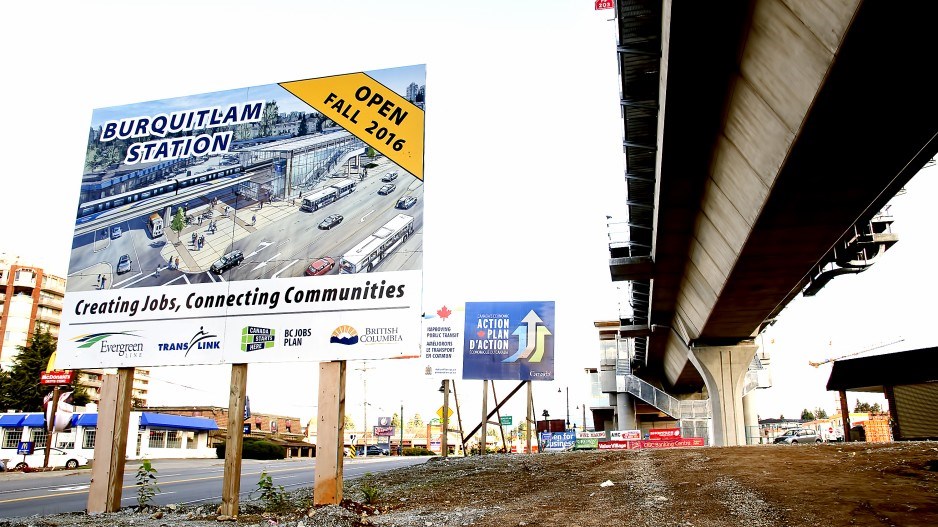The City of Coquitlam plans on expanding and increasing its Community Amenity Contribution (CAC) fees for new home developers after a successful pilot program in the bustling Burquitlam-Lougheed area.
Similar to Vancouver, CAC income would be earmarked to help pay for parks and recreation facilities in Coquitlam.
“In the next 25 years, [the region] is going to absorb a million people,” said Mayor Richard Stewart. “We will have to meet their demand for housing and we are going to need to create neighbourhoods with amenities that support that population.”
If the expansion of the CAC program is approved by council, developers would contribute $3 per square foot for all new multi-family floorspace on top of the density that already exists on a parcel of land. Single-family home developers would be expected to contribute $5,500 for all lots greater than 4,000 square feet, while smaller parcels would pay $4,800.
Staff estimate the program would raise $3.4 million annually, or approximately $103 million for new parks and civic facilities over the next 30 years.
If CACs do cause real estate prices to rise, as some suggest, the increase would be marginal based on estimates included in a Coquitlam city staff report.
The document noted that for single-family homes, the price to build per square foot would rise 0.4%, from $225 to $226, while the per-square foot construction costs for townhouses would rise 1.5%, from $195 to $198. A four-storey wood-frame building would see a 1% increase from $295 to $298 while 16- to 22-storey structures would increase 0.8% from $365 to $368 per square foot.
Coquitlam planning and development general manager Jim McIntyre said CACs are contributions — not mandatory payments — and that a municipality cannot legally force a developer to pay. But he said the city has some latitude when it comes to compelling a proponent to contribute, noting that “council is not obligated to approve every re-zoning.”
McIntyre said that the uptake has been 100% in the Burquitlam-Lougheed neighbourhood, which has seen a rush of condominium development linked to the Canada Line extension. He said most developers prefer the fixed rate rather than the one-off negotiations that are sometimes seen in other municipalities, including Vancouver.
Coquitlam’s new CAC structure on residential development is expected to come into effect early in 2016, pending council approval.
Tri-City News and Business in Vancouver




